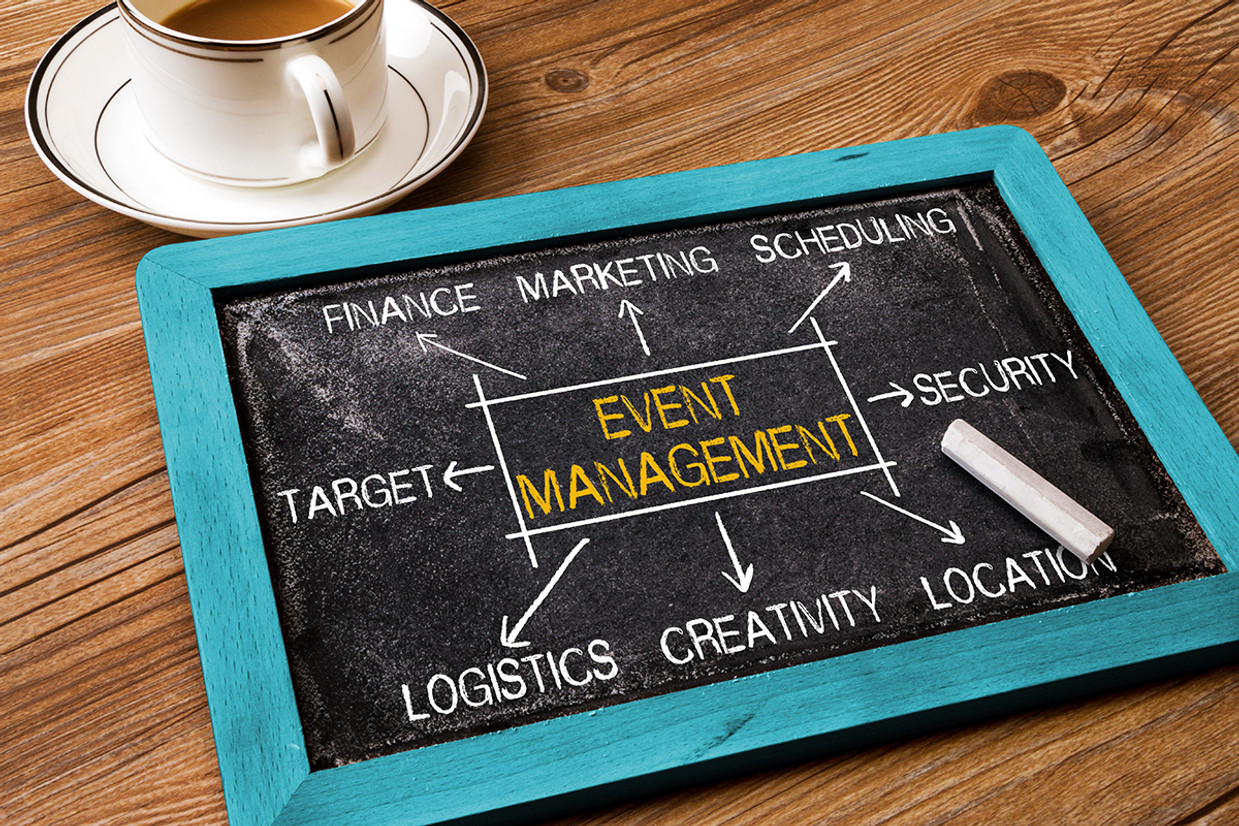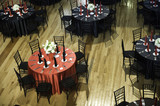Event Planning For Beginners, Part 1: Budgeting
Regardless of the type of event you are planning, it is always a good idea to start by putting together a budget. Of course, different types of events may have varied expenses, but here is a list of typical large expense categories that applies to most events, as well as a suggested percentage of the budget for each category.
Venue: 15%
Picking a venue is usually a great place to start when planning an event. Your venue sets the mood for the event and can further enhance your chosen theme. It is important to consider the desired outcome of your event before you book your venue. For example, if you are hosting a networking event, you will want to make sure your venue has a separate area for attendees to mingle that isn’t limited to seating space or too close to loud entertainment.
Rentals: 10%
In some cases, rental items, such as tables and chairs, may be offered by your venue. They may even be included in the venue’s price. Be sure to discuss this with the venues you are considering and don’t forget to ask about linens. When making arrangements for tables and chairs, consider providing a space with taller cocktail tables for those standing and socializing. It is also a good idea to add a table or two to your seating chart for last minute additions to the guest list. Other rental items may include activities for guests, such as a photo booth, or larger theme décor items.
If you host several events in a year, it may be worth purchasing your own linens. However, don’t forget to factor in the cost of dry cleaning after each event when considering this investment.
Catering: 20%
We have all been to an event with less-than-impressive food. Your choice in catering can really set your event apart. Another item to discuss with your venue is whether or not they allow outside food and drink. If not, you will be stuck with their food choices, and prices. Using your venues kitchen for food may save you money, but it is likely that they will charge a premium on alcoholic beverages as opposed to purchasing it in bulk elsewhere. If you do choose to serve alcohol at your event, this could create an additional 5-10% cost to your event, depending on the type of drinks you decide to serve. If you are trying to save money on your bar tab, try limiting your offering to beer and wine – guests will still be happy and so will your wallet.
Entertainment: 25%
No matter what type of event you are hosting, it is likely that your chosen entertainment will make a huge impact on the success of your event. Whether you have decided on a DJ, live entertainment, or a speaker, it is likely that you will be forking out a pretty penny for good quality. While there are many areas in your budget that may allow for you to cut expenses, entertainment shouldn’t be one of them. Guests will likely forget all about the décor and food over time, but the entertainment will probably make a lasting memory – make it a good one.
Décor: 10%
Usually, the largest expense item for décor is floral arrangements. Live flowers make a huge impact on the ambiance of your event, but they come at a cost. If you are trying to save money on décor, you may consider other options such as balloons or candles (make sure your venue allows open flames). If you are feeling thrifty, but really want floral arrangements at your event, try seeing if the person renting your venue the next day would like to purchase your flowers at a deep discount. If you don’t sell your floral arrangements, consider giving them to your guests at the end of the night or donating them to a charity such as Random Acts of Flowers, might as well not let them go to waste!
Marketing: 10%
Of course, not all events will require marketing, but you will have to get the word out somehow. Even invitations to private events can get pricey, and don’t forget about postage! It is in good taste to make sure your RSVP envelopes already have a stamp on them when you send out your invites. If you are planning a company event, you may need a marketing budget to print flyers or announcements. However, if you are looking to save on this category, you may consider using email invitations or social medial to get the word out. These options also make tracking attendees fairly easy.
Buffer: 10%
As with any budget, it is always a good idea to plan a buffer for unexpected expenses. Having surprise costs come up while planning your event is inevitable, but having this buffer built into your budget already provides a little cushion for your wallet.
Stay posted for part 2 of our 5 part series on Event Planning For Beginners
Recent Posts
-
Floor Plans For Corporate Events, Part 2
Corporate events can range from anything from a simple lecture to a full-blown convention. Each
-
Floor Plans For Weddings, Part 1
Weddings are a time for celebration and the joining of two families. They take time and understa
-
Insurance For Your Rental Company
Accidents happen. Some can be predicted, but not all can be helped. Liability insurance helps fi




